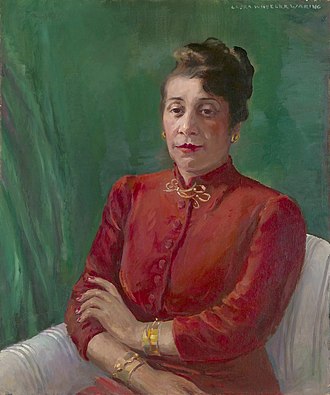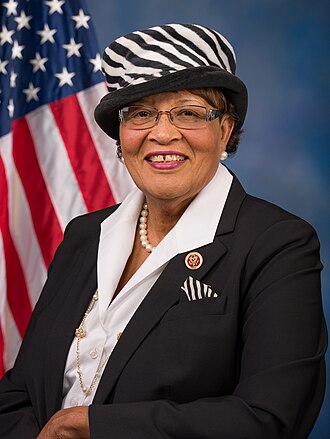Discover Your Roots
SIGN UPDiscover Your Roots
SIGN UPAlma is a Latin-origin female name that means "Nourishing." It has been historically used in both masculine and feminine forms. The origin of the name is debated, with potential derivations from "alma mater," "benevolent mother," and the Latin word "almus," meaning "kind" or "nourishing." The name gained popularity after the Battle of Alma in the 19th century and has various meanings in different languages, often emphasizing nurturing and spiritual nourishment. Alma has been used for goddesses and has cultural significance in various contexts, including folklore, war-related events, and literature. The name has appeared in different forms in different languages, but it generally conveys the idea of a wise and nurturing mother figure.

Alma S. Woolley was an influential American nurse, nurse educator, nursing historian, and author. Born in New York City in 1931, she overcame a challenging childhood to become a prominent figure in the field of nursing. After obtaining her bachelor's degree from Cornell University's School of Nursing, Woolley embarked on a successful career that included roles at various hospitals and educational institutions.Her dedication to nursing education led her to advocate for the transition of nursing programs to university-based settings. This commitment was exemplified by her role in creating a B.S. degree program in nursing at The Richard Stockton College of New Jersey. Additionally, she was awarded a doctorate in nursing education from the University of Pennsylvania and held prestigious positions such as Director of the School of Nursing at Illinois Wesleyan University and Dean of Georgetown University School of Nursing and Health Studies.Woolley's impact extended beyond her professional endeavors, as she authored numerous books and articles on nursing education and the history of nursing. Her work shed light on the accomplishments and contributions of nurses throughout history, filling an important gap in the broader narratives of nursing. Despite her passing in 2005, her legacy continues to inspire and inform future generations in the field of nursing.References:Barbara Bates Center for the Study of the History of NursingGeorgetown University School of Nursing and Health Studies

Alma Moreno, born Venesa Moreno Lacsamana on May 25, 1959, is a well-known Filipino actress and politician. She gained fame for her roles in revealing movies during the 1970s and 1980s, earning her the title "Sex Goddess of Philippine Movies." Moreno's versatility is evident in her performances in drama, comedy, and sexy films. She also made a mark as a television presenter and dancer, popularizing the "Tangga" outfit on her shows. In addition to her entertainment career, Moreno has ventured into politics, serving as the First Lady of Parañaque and later holding positions as a councilor and president of the Philippine Councilors League. She also made headlines with her senatorial bids and high-profile interviews. Moreno's personal life has been the subject of public interest, including her relationships with prominent figures and her battle with multiple sclerosis. Throughout her career, she has left a lasting impact on the entertainment industry and the political arena, making her a prominent figure in Filipino society.

Alma Woodsey Thomas (1891–1978) was an influential African-American artist and art teacher based in Washington, D.C., recognized as a major American painter of the 20th century. She made history as the first African-American woman to have her work included in the White House's permanent art collection. Renowned for her vibrant, abstract paintings, Thomas's artistic career blossomed after retiring from a 35-year teaching tenure at Washington's Shaw Junior High School. Although often associated with the Washington Color School art movement, she is alternatively classified as an Expressionist and/or Black Abstractionist. Thomas earned her teaching degree from the University of the District of Columbia and was the first graduate of Howard University's art department. Overcoming the challenges of segregation and prejudice, she achieved success as an African-American female artist. Thomas's posthumous reputation has continued to grow, with her paintings displayed in prestigious museums and collections, and the Smithsonian American Art Museum housing the world's largest public collection of her work. In 2021, one of her paintings, "Alma's Flower Garden," sold in a private transaction for $2.8 million, reflecting her enduring impact on the art world. Born in Columbus, Georgia, Thomas exhibited artistic talent from a young age, and despite facing racial barriers, she pursued her passion for art and education, leaving a lasting legacy in the art world.

Alma Wilford Richards (February 20, 1890 – April 3, 1963) was an American athlete, renowned for being the first resident of Utah to win a gold medal at the Olympic Games in 1912, specifically in the running high jump event. After graduating from Brigham Young prep school in 1913, Richards pursued higher education at Cornell University on a scholarship, where he not only obtained a law degree but also became a member of the prestigious Quill and Dagger honor society. His illustrious career extended beyond athletics and academia, as he dedicated 32 years to teaching science at Venice High School in Los Angeles. Posthumously celebrated, Richards was inducted into the Utah Sports Hall of Fame (1970), Helms Hall of Fame, and Brigham Young University Hall of Fame. A man of profound personal and family values, Richards was a devoted member of the Church of Jesus Christ of Latter-day Saints. His legacy lives on through his descendants, including children Joanne, Mary, Anita, and Paul. Alma Richards continues to be remembered as a trailblazing athlete and an inspiration to many.

Alma Shealey Adams, born on May 27, 1946, is an American politician known for representing North Carolina's 12th congressional district in the United States House of Representatives. Previously, she served as a college administrator and art professor in Greensboro, and is recognized for her distinct hats. Alma's political journey began with her appointment to the North Carolina House of Representatives in 1994, and she made history by becoming the 100th woman serving in the 113th Congress. Alma's educational background includes a Bachelor of Science and a Master of Science degree from North Carolina A&T State University, along with a Ph.D. in art education and multicultural education from Ohio State University. Throughout her tenure in the North Carolina House, Alma held leadership roles in various committees and was elected as the chair of the North Carolina Legislative Black Caucus. In 2014, she won the special election to fill the vacancy created by the resignation of Mel Watt and simultaneously secured a full two-year term. Alma Shealey Adams continues to play a significant role in shaping the political landscape of North Carolina through her dedicated service in the U.S. House of Representatives.
All images displayed on this page are sourced from Wikipedia or Wikimedia Commons.We use these images under their respective Creative Commons or public domain licenses. Wherever applicable, author attributions and license information are provided. If you believe an image is used incorrectly or outside its license terms, please contact us so that we can review and correct the issue.